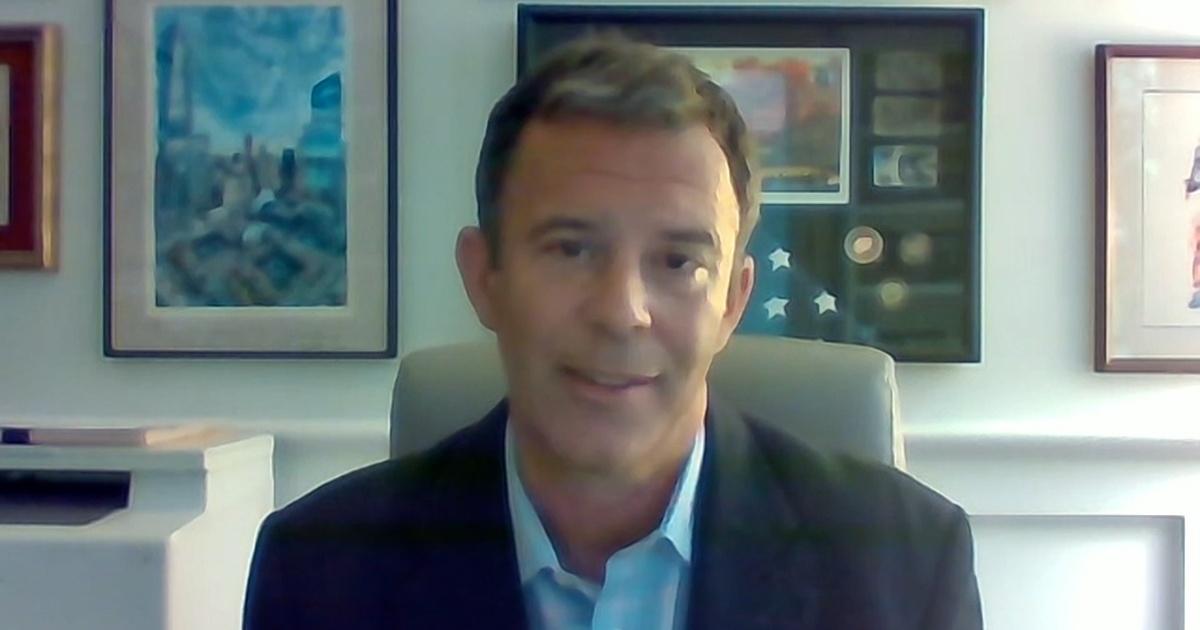Play all audios:
Well, Manhattan's U.S. attorney indicated this investigation is ongoing. The indictment is reverberating across New Jersey. For more on potential implications here, I'm joined by
Chris Commission, former assistant U.S. attorney for New Jersey. Chris, these are stunning allegations and charges here. What stood out to you when you read through this indictment? I think
two things. Just the U.S. attorneys took a real clinical approach to drafting this thing. And that level of detail, as I read it, is an attempt to kind of not just allege what needs to be
alleged, but also foreclose any claim defenses that they anticipate will be raised in this matter. And if you note that they they focused not just on the obvious like payments and official
use of authority or official use of influence, but they go into great detail about the evidence that they've had. And with that respect. Yeah. I mean, they go so far as to really lay
out texts, conversations, encrypted phone conversations, and it's easy to read for the layperson. We heard the U.S. attorney for the Southern District of New York encourage the public
to read it. Is there anything, though, that you see that clearly proves that an official act was taken in exchange for these favors? Because, of course, that is where this all hinges? Well,
I think it's important to note, as as everyone is aware, this these are allegations and the defendants are entitled to their day in court and the presumption of innocence. But the way
it's laid out, the way that they focus in great detail on the receipt and the important thing of these charges of bribery and corruption and Hobbs Act, extortion, is you have to prove a
specific or explicit quid pro quo of this for that. And they lay that out like clinically and it reads as a classic quid pro quo. Oftentimes what you'll see in corruption cases is
defendants will try to use an intermediary or a middle person. And in this case, it seems to be alleged that that middle person was Senator Menendez, his wife. And the purpose and reason
people engage in this type of activity is typically because they're trying to build themselves or conceal or hide their corrupt activity. The fact that all of these valuable moneys
that, you know, envelopes with fingerprints of other defendants were all concealed and secreted throughout the Menendez's home. That's I would argue that's additional attempt
intent to conceal, because otherwise you take it to the bank. If you take it to the bank, you make deposits and those deposits can be tracked. Yeah. So they really, really go to great
lengths. And there are so many examples. To your point, Chris, there are so many examples with regard to conversations with officials in Egypt, but maybe the most plain one was the purchase
of the Mercedes Benz, the convertible, and how the cash was exchanged. The down payment was made, the automatic payments were set up. The prosecutors really drew a lot of direct lines there.
Is that the main difference here between the senator's previous federal corruption charges? These more direct lines showing the quid pro quo? I think so, because I'm familiar with
that indictment, too, from six years ago, which the jury hung on. And the quid pro quo, that specific specificity that's necessary was clearly lacking. But here they tie it so closely
in chronology. You can see some of the allegations are so contemporaneous where there's official action that's exercised by Senator Menendez and then a day or two later, the car is
purchased and down, payments are made by other coconspirators. So they tie up that timeline quite tight. I can't read the senator's mind, but I have a feeling after that jury hung
six years ago, he probably felt emboldened and largely invincible because it's very rare the Department of Justice will circle back on it on a separate federal prosecution like this.
But it appears that the alleged criminal activity just picked up right thereafter. Yeah. I mean, in fact, the timeline almost overlaps. Right. A lot of these incidents are alleged to have
started in 2018. Of course, that mistrial happened just before that. So where does the prosecution go from here? Because we heard the U.S. attorney say we're not done yet. Well, I also
think that's a signal to the other coconspirators is oftentimes, as you'll see, they're in the business. They meaning the U.S. attorneys are trying to seek cooperation and
those co-defendants have a great incentive to kind of come to the table and try to minimize their criminal culpability as best they can and seek and seek the government's support by way
of cooperation. And those witnesses on the inside of a conspiracy can kind of paint a picture for a jury of precisely what was happening and also say, yes, this is what was going on. And
here's the evidence that indicates that. Chris Commission is the former assistant U.S. attorney for both New Jersey and Maryland. Thank you so much for your time on what is undoubtedly
a historic day. Yes, it is. Good evening and thank you very much for your time.

